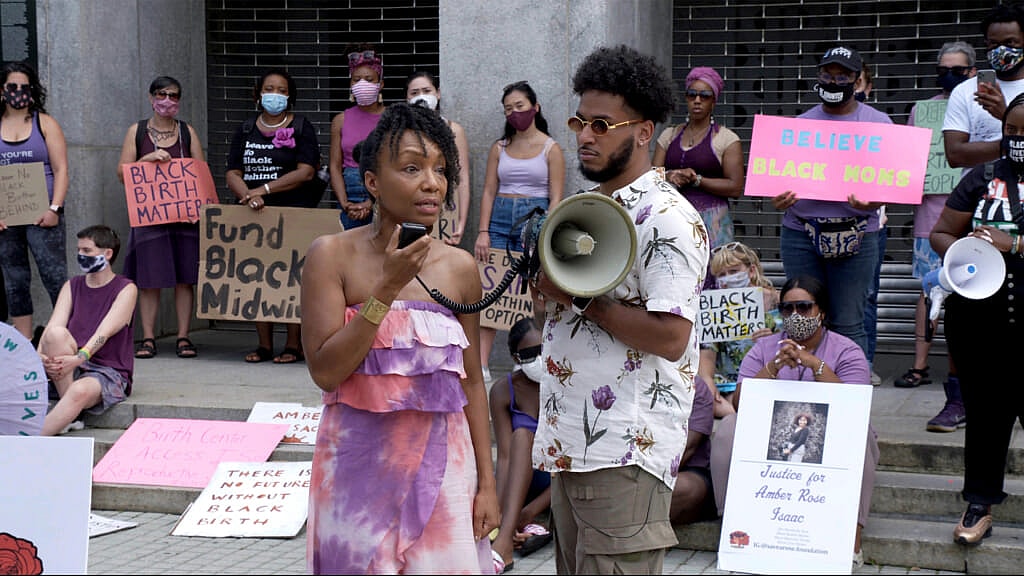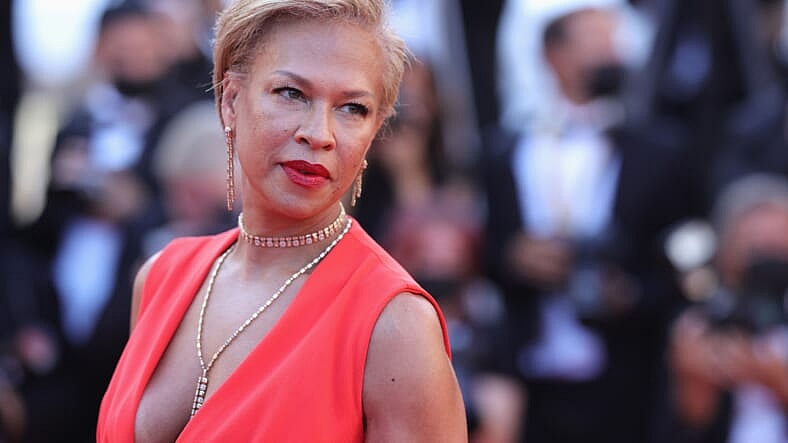In the latest episode of theGrio‘s Acting Up podcast, directors Tonya Lewis Lee and Paula Eiselt open up about Aftershock, the documentary that took Sundance by storm this year,
The documentary, which theGrio‘s Cortney Wills named as one of her five favorite films at Sundance this year, examines the “heart-breaking, infuriating truths” of the maternal health crisis in the United States.
Wills described the documentary as “a damning indictment of our healthcare system,” while still offering glimmers of hope.
On Acting Up, Lee and Eiselt opened up about what brought them to this project, the hard conversations they had while working together, and more.

(Courtesy of Sundance Institute)
Eiselt, a white woman, discussed tackling this subject that specifically centers Black women and the important conversations she had with Lee.
“I came into the issue from my own experience but quickly knew that it was only a part of what Black women go through. I am missing a key lived experience that no matter how much I read, I can never truly understand.”
She added, “Working with Tonya…the pandemic gave us space to talk and I had space to listen. In a crazy way without the pandemic, I know we would have found a way but for me the benefit of just really being able to listen in that way over that period of time was tremendously helpful to me as a white person.”
Lee provided her perspective.
“For me, I talk about race a lot and I am not afraid to talk about race with white people to tell them what I really think and if you are going to tangle with me, you better be ready for it.”
She continued, “Certainly there were times when you do have hard conversations. You have to, but that’s how you get better. I don’t run from the hard conversation, I run right into the hard conversation.”
“It gets down to the real truth, and then we can make a change and make things better,” she added. “I think being able to talk honestly with one another is the key.”

The pair also opened up about the decision to focus two stories on men, Omari Maynard and Bruce McIntyre, who lost their wives to childbirth.
“It’s because they’re the ones who were left behind,” Lee said. “They’re the ones who have to raise their children and move forward…we met both of these men very early in their grieving process.
What’s it like for a man who’s lost his partner to suddenly have to raise a child on his own? How does he get support? Where does he go? How does the community support him? How does his family support him? And then what does he do?”
Lee added, “I mean, obviously, we know the image of Black men in our society, and it’s so refreshing to be able to show how Black men really are. They are wonderful men.”
The full episode of Acting Up is available to stream now. You can read more about Aftershock, here.
Have you subscribed to theGrio’s podcast “Acting Up”? Download our newest episodes now!
TheGrio is now on Apple TV, Amazon Fire, and Roku. Download theGrio today!

